#sageresponse
Explore tagged Tumblr posts
Text
Patience Jonathan, Asari Dokubo, other personalities who impacted Nigerian pop culture
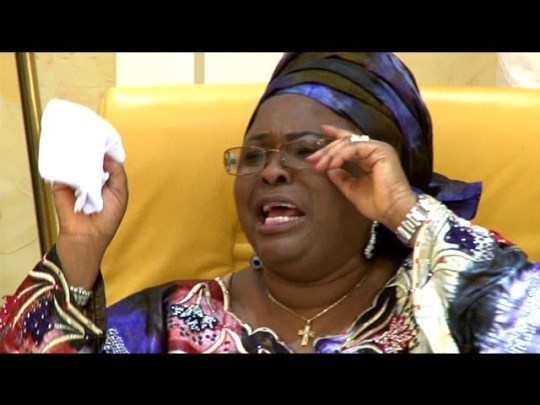
Compared to a few years ago, there is a noticeable shift in how people achieve fame.
Gone are the days when you had to be a royal figure or a wealthy individual to become famous.
Anyone can become a global sensation overnight with just the right words or actions recorded and uploaded to social media.
This is commonly referred to as a viral moment. While many viral moments are short-lived for the people involved, others become timeless, heavily influencing the global phenomenon known as “Pop Culture.”
Nigeria is no stranger to individuals with these viral moments, as many have found ways to shape the entertainment industry, becoming a reference in films, skits, and songs. They’re popular on social media as a meme or slang.
From political figures to comedians, here is a list of ten Nigerians whose viral moments significantly impacted pop culture.
1. Patience Jonathan
Surprise, Patience Jonathan, Nigeria’s former first lady, tops our list. During her husband Goodluck Jonathan’s tenure, the former first lady became well-known for her grammatical errors during broadcast speeches or interviews.
Among the few amusing statements she made, one that broke the internet was “There is God oh,” which earned her the title of “Youtube’s most-watched Nigerian non-music video” in 2015.
She made the statement in a video that aired on channel television in 2014.
Mrs Jonathan was seen in the video meeting with the principal of GSS, police commissioners, and WAEC officials. Speaking about the kidnapping of the Chibok girls, the former first lady sobbed, “All this blood you people are shedding, there is God o, there is God o, God…o…Chai, there is God o.”
The video quickly went viral after producers added sound effects and released a remix version.
Skit creators also used it in their videos, and comedians frequently used it in their routines.
2. Shem Obafaiye
Before 2013, it was rare to see one out of ten people not wearing a tee-shirt with the words “Oga at the top.”

Shem Obafaiye aka Oga at the top
When asked for the NSCDC website address during an interview with Sunrise in 2013, a Channel’s television program, Mr Obafaiye, who was then the Lagos state commandant of the Nigeria security and defence corps (NSCDC), referred to his “oga at the top.”
The presenters pushed harder to get him to open up, but all he could say was, “ww. nscdc, that’s all.
The interview went viral, as is customary for Nigerian social media users, and everyone jumped on the trend of saying, “Let me ask my Oga at the top” when asked a question.
3. Odunlade Adekola, Mr Ibu
Odunlade Adekola, a famous Yoruba actor, is no stranger to the walls and feeds of numerous social media accounts. Because of his ability to convey various funny emotions in films, his images are frequently used as memes with witty captions above them.

Odunlade
The most famous image is one in which he is dressed in an Ankara and has an exclamation expression on his face.
Mr Ibu is another actor who has become well-known for his memes. Mr Ibu’s name would undoubtedly be among the top ten on any list of the top funny actors in Nollywood.
Boasting a vast collection of comedy movies, Mr Ibu has portrayed several characters that have left viewers laughing.
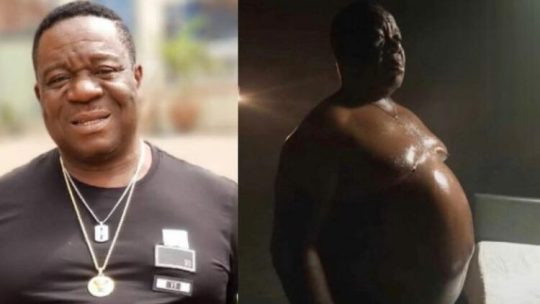
Mr Ibu
To accurately represent comical statements, Nigerians often use a picture from one of his movies to buttress their point.
4. Papa Kallem
If you hear the words “Funke” or “Apostle will hear of this” in a comedy skit, remember that it came from a Nigerian-British man called Papa Kallem. He is the father of famous Youtuber Emma Kallem.
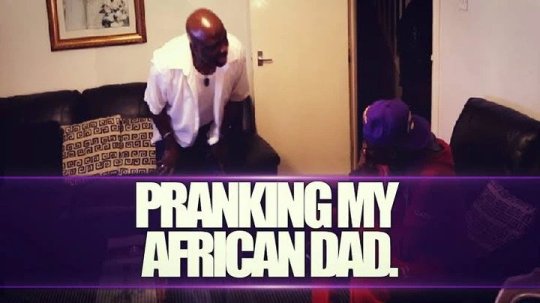
Papa Kallem
When Emma was 16, he played a prank on his father by telling him he had impregnated a 14-year-old girl.
Unaware of the recording, his father began calling his mother’s name, Funke, and threatening to inform the apostle, which is where the phrase “the Apostle will hear of this,” came from.
5. Unknown man from CV interview
“If you don’t get it, forget about it” is a slang phrase that evolved from social media to reality. A man stated this during a street interview in which he was asked to explain what a CV is.
His response was incoherent, prompting the interviewer to ask him what he meant, resulting in the iconic phrase.
6. Aki and Pawpaw
Even though their films were released over a decade ago, the troublesome Nollywood duo remains popular among Nigerians.

Aki and Pawpaw
Aki and Paw paw’s reactions in pictures have become a staple for social media to express their feelings and humorous opinions. Played by talented actors Chinedu Ikedieze and Osita Iheme, their video clips have gained wide circulation worldwide, especially that of Aki (Osita Iheme).
In 2021, a reboot of the classic hit film was released in theatres across the country.
7. Oga Sabinus
Chukwuemeka Emmanuel Ejekwu, aka Oga Sabinus, is a famous comedian known for his hilarious skits on YouTube and Instagram.
Despite having been in the comedy business since 2015, he rose to prominence in 2019. In the following years, he won the De Elite Nigerian Star Award (DENSA) and the Africa Magic Viewers Choice Award (AMVCA) for being the best content creator.

oga-sabinus
Widely recognised for his blue shirt and relatable content, the comedian’s picture has become a must-use for social media users attempting to explain or calculate a point.
8. Asari Dokubo
‘‘70 years old man’’ , ‘’You think say you wise’’ and ‘‘You be mumu’’ are two phrases made famous by Asari Dokubo during an online spat with the maverick entertainer Charly Boy in 2017.
The leader of the Niger Delta People’s Volunteer Force made the remarks when he mocked the #Ourmumudondo convener, Charles Boy, for collapsing during the #ResignOrResume protest in Abuja.
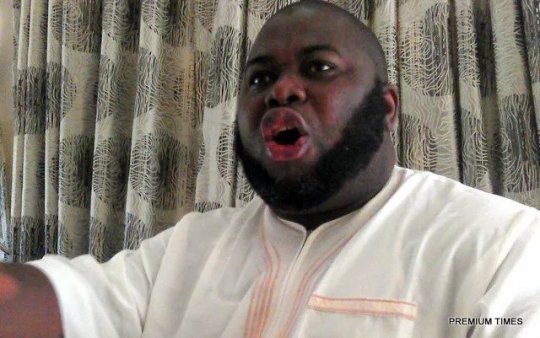
Asari Dokubo
Speaking in a Facebook video at the time, Dokubo flayed Charlyboy for not supporting the movement for the Independent of Biafra. He mocked : “Dem teargas am. He fainted. He passed out. 70-year-old man. Charlyboy, na your mumu don too much. You think say you’re wise? You’re a mumu man. As them throw the tear gas, something wey pass for reach you.”
Several mainstream Nigerian television and radio stations and Nigerian Instagram skitmakers have adopted the phrases in their content creation.
3 notes
·
View notes
Text
Enterprise-wide Coaching
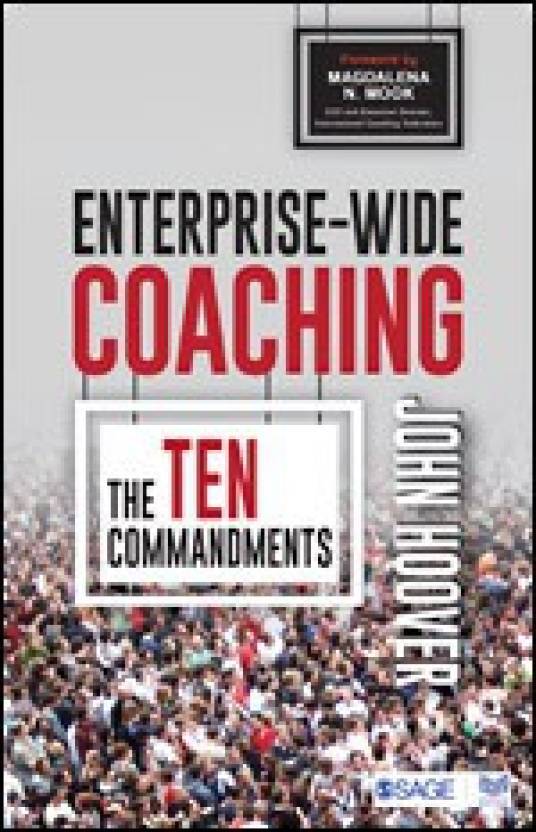
Enterprise-wide Coaching, Author(s) John Hoover,Publisher SAGE Response, ISBN 9789352806430, Pages 320, Binding Paperback, Language English, Publish Year March 2018, Discount: 5.00%, Price: ₹470.00
Enterprise-wide Coaching by John Hoover, Buy Books Online, Buy Management Online, Buy Professional Books, Technical Bookstore, Online Book Store, Best Book Seller in India
#EnterprisewideCoaching #JohnHoover #ExecutiveCoaching #LeadershipDevelopment #SAGEResponse #ISBN 9789352806430 #Paperback #English #Discount #OnlineBookStore
To Know More or To Buy Visit@ http://bit.ly/2M11szZ
0 notes
Text
Meet Omolara, the female tourist who rode from Lagos to Abuja on bike
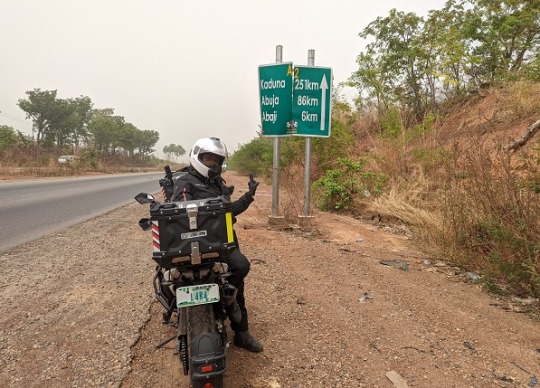
Insecurity, bad roads, fear of accident; travelling on Nigerian roads has become a scary experience for many people in recent times. But for others like Omolara Annie, it is worth the risk.
From Lagos to Port Harcourt, Kwara, Ondo, Warri in Delta state, among others; Annie has toured various parts of Nigeria using her power bike.
With sheer grit, passion, and determination; the bike rider has taken her love for adventure to a different level. She has also continued to get recognition for her heroics.
Annie, who refers to herself as ‘biker chick’, usually keeps her fans glued to her social media pages by providing short videos of her trips.
The biker recently took to her Twitter page to recount her latest adventurous ride from Lagos to Abuja.
In the post, Annie recalled how she became afraid at some points on the lonely highway but had to summon the courage and continued with the trip.
The biker and vlogger also relished her excitement completing the trip, adding that “it wasn’t an easy one.”
“Lagos to Abuja on two wheels it wasn’t an easy one but it was worth it. I got scared at some point on the lonely highway but arrived in good time. Looking forward to many more rides within and outside Nigeria on my bike,” she wrote.
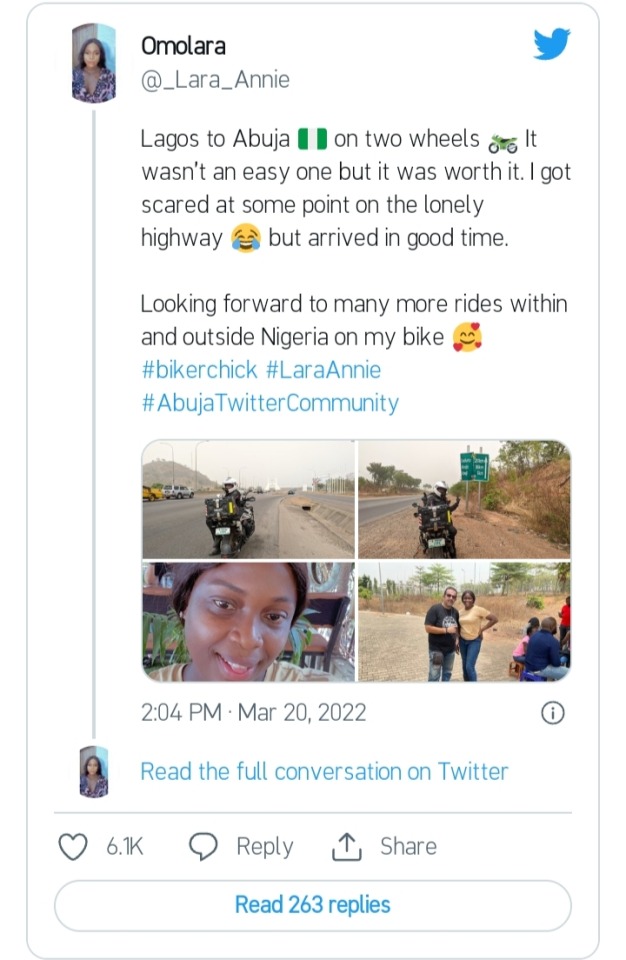
FROM NIGERIA TO BENIN REPUBLIC, TOGO AND GHANA ON BIKE
Last year, Annie staged a tour across West African countries. She travelled via the Seme border to the Benin Republic and then departed for Lome in Togo.
From Lome, Annie returned to Cotonou where she ended the tour and came back to Nigeria.
Her latest trip to Abuja has continued to elicit reactions, with some Twitter users commending her bravery.
Here are what some Nigerians had to say:
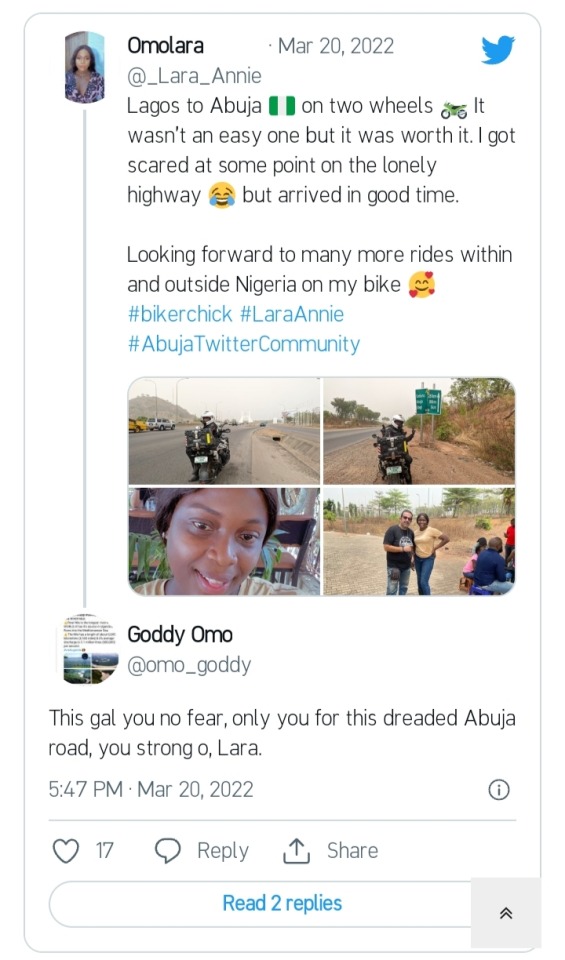
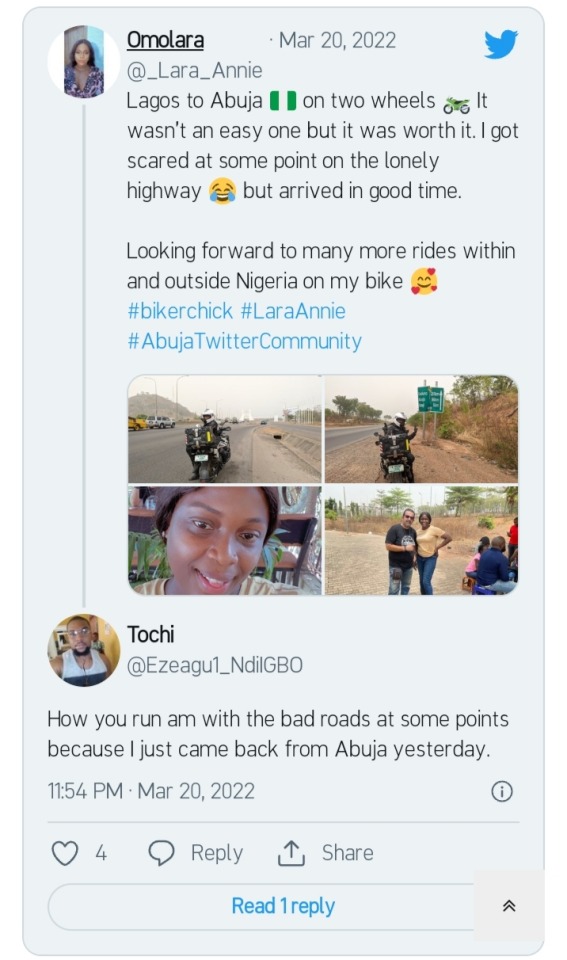
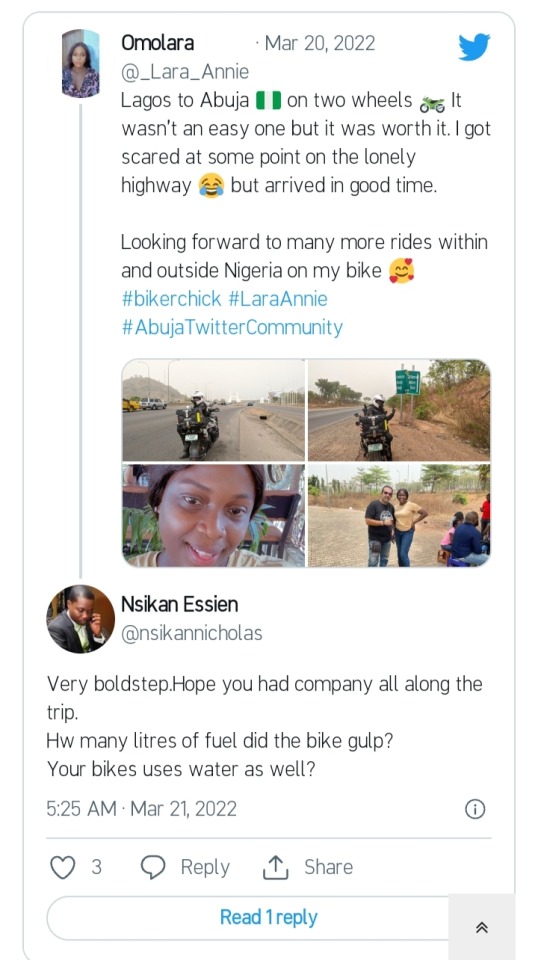
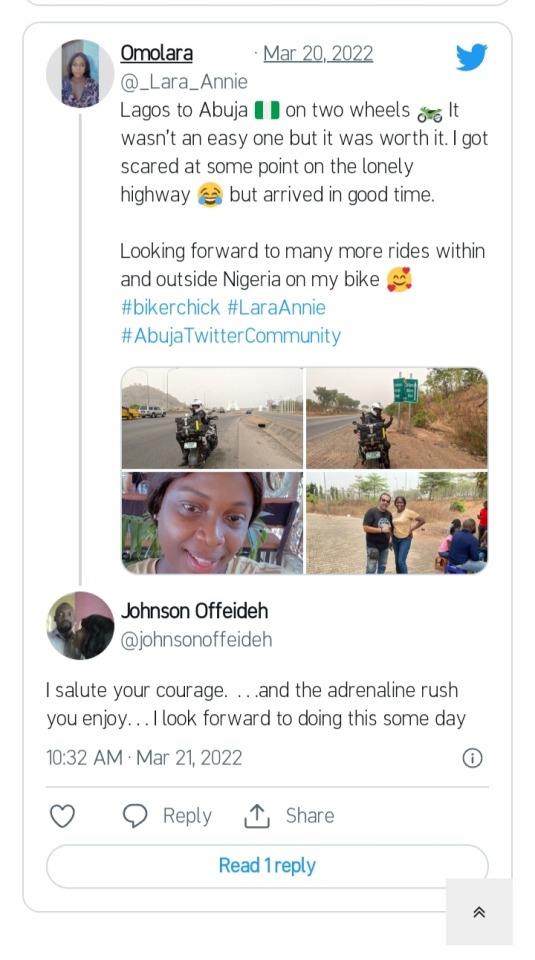
Credit: thecable ng
2 notes
·
View notes
Text
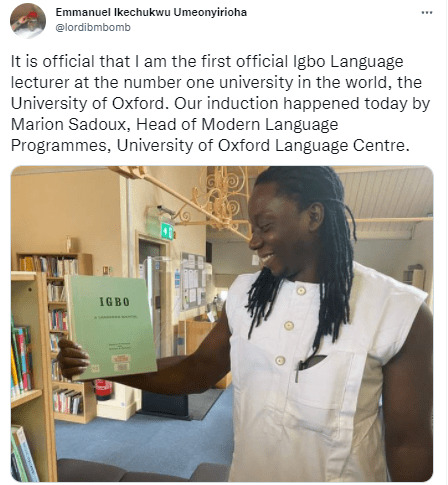
Igbo language to be thought at University of Oxford
Emmanuel Ikechukwu Umenyiora, a Nigerian, has expressed his delight at being the first Igbo language instructor at the University of Oxford. Following his induction on Thursday, February 17, Emmanuel announced the news on Twitter.
“It is official that I am the first official Igbo Language lecturer at the world’s top university, the University of Oxford,” he wrote.
Marion Sadoux, Head of Modern Language Programs, University of Oxford Language Centre, gave us our induction today.
Because of the James Currey Society, this was achievable.
The Igbo language will be taught for the first time at the university.
History has been made.
I am so happy and grateful for this opportunity.
I promise to make the Igbo language and culture known to the world.’
3 notes
·
View notes
Text
Liz Truss named as UK’s third woman prime minister

New Conservative Party leader and Britain’s Prime Minister-elect Liz Truss delivers a speech at an event to announce the winner of the Conservative Party leadership contest in central London on September 5, 2022. – Truss is the UK’s third female prime minister following Theresa May and Margaret Thatcher. The 47-year-old has consistently enjoyed overwhelming support over 42-year-old Sunak in polling of the estimated 200,000 Tory members who were eligible to vote.
Britain’s Conservative party Monday announced Liz Truss as its new leader to succeed Prime Minister Boris Johnson and confront Britain’s deepest economic crisis in decades.
The foreign secretary comfortably beat her rival, former finance minister Rishi Sunak, by about 57 to 43 percent after a gruelling summer-long contest decided by just over 170,000 Conservative members — a tiny sliver of Britain’s electorate.
In a short victory speech at the announcement in a central London convention hall, Truss said it was an “honour” to be elected after undergoing “one of the longest job interviews in history”.
“I campaigned as a Conservative, and I will govern as a Conservative,” she said, touting Tory values of low taxes and personal responsibility.
Truss vowed a “bold plan” to address tax cuts and the energy crisis.
Details are expected in the coming days.
Truss, 47, will be only the UK’s third female prime minister following Theresa May and Margaret Thatcher.
She will formally take office on Tuesday after Johnson tenders his resignation to Queen Elizabeth II.
The leadership contest began in July after Johnson announced his departure following a slew of scandals and resignations from his government, including Sunak’s.
Truss reserved a portion of her short speech to praising Johnson’s record, including on Brexit and the Covid pandemic, and said he was “admired from Kyiv to Carlisle”.
That won warm applause from the Tory faithful present. However, the right-wing ideologue faces a tough task in winning over public opinion.
A YouGov poll in late August found 52 percent thought Truss would make a “poor” or “terrible” prime minister.
Forty-three percent said they did not trust her “at all” to deal with the burning issue of the rise in the cost of living, as energy prices and inflation generally rocket amid Russia’s war in Ukraine.
‘Worst in-tray’
The Tory winner faces “the worst in-tray for a new prime minister since Thatcher”, The Sunday Times wrote.
Millions say that with energy bills set to rise by 80 percent from October — and even higher from January — they face a painful choice between eating and heating this winter, according to surveys.
The Times and Daily Telegraph newspapers reported Monday that Truss was considering freezing energy bills for consumers, with the government reimbursing suppliers.
But polls show public support for an early general election, and the Conservatives face a growing challenge to retain their 12-year grip on power with the opposition Labour party riding high.
Truss became foreign minister a year ago after holding a series of ministerial posts in departments including education, international trade and justice.
She began her political journey as a teenage member of the centrist Liberal Democrats before switching to the Conservatives.
In 2016, she campaigned for the UK to remain in the European Union but switched allegiance when Britons backed Brexit.
Her love of photo opportunities and style of dress — posing in a tank in Estonia and wearing a fur hat in Moscow — have earned her comparisons to Tory icon Thatcher.
Her sometimes stiff style has become visibly more relaxed and allies have sought to soften her image, revealing her love of karaoke and socialising.
Storm clouds
The announcement Monday by Conservative officials set in motion a chain of events.
For the first time in her 70-year reign, the 96-year-old monarch will appoint the prime minister at her Scottish retreat, Balmoral, rather than at Buckingham Palace in London.
The queen has been suffering mobility problems and has cancelled a number of public engagements.
On Tuesday morning, Johnson will deliver a farewell speech at Downing Street before flying to Scotland — where heavy rain is forecast — to hand his resignation to the queen.
Truss is expected to fly separately to accept the queen’s invitation to form a new government, to ensure continuity of government in case of any mishaps.
On her return to Downing Street, the new prime minister will then give a short address to the nation. By tradition, that happens on the steps of Number 10.
But it may have to be moved indoors with forecasts for thundery downpours, matching Britain’s dismal outlook as the Truss government starts life.
1 note
·
View note
Text
Nigerian Singers, Olamide, Wizkid, and Adekunle Gold have won individual awards at the ongoing 2022 Headies in Atlanta, United States of America.
See the full list of winners below.
Buju BNXN, won the 2022 Headies Next Rated award.
Best Rap Album – Olamide (Carpe Diem)
Best Collaboration – Wizkid feat. Tems (Essence)
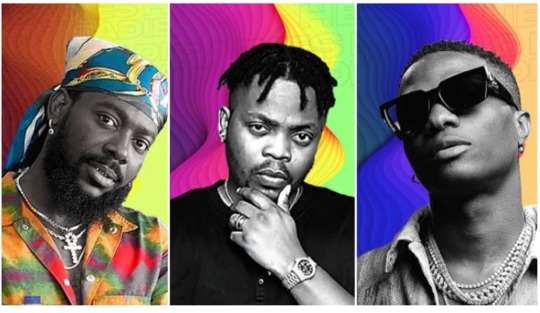
Best R ‘n’ B Single – Wizkid feat. Tems (Essence)
Album of the Year – Wizkid (Made in Lagos (Deluxe Edition)
Best Afrobeat Album – Wizkid (Made in Lagos)
Songwriter of the Year – Adekunle Gold (Sinner).
Best Music Video – TG Omori (Champion – Fireboy DML feat. D Smoke)
Artiste of the Year – Burna Boy (Nigeria)
Best Male Artiste – Burna Boy
Digital Artiste of the Year – Davido
Humanitarian Award of the Year – Davido
Best Recording of the Year – Patoranking (Celebrate Me)
Producer of the Year – SARZ (Monalisa – Lojay and SARZ)
Best Alternative Album – Ibeji (Intermission)
Headies’ Viewer’s Choice – Arya Starr (Bloody Samaritan)
Best Afrobeat Single – Fireboy DML (Peru)
Related News
Headies 2022: Olamide, Wizkid, Adekunle Gold win big
Artistes whose careers flourished with Olamide’s support
Singers, BNXN, Ruger trade words on Twitter
Best Reggae and Dancehall Album – Patoranking (Three)
Best Vocal Performance (female) – Waje (Last Time)
Best Vocal Performance (Male) – Oxlade (Ojuju)
Lyricist on The Roll – A-Q (The Last Cypher)
Best Streethop Artiste – Goya Menor & Nektunez (Amenor Amapiano remix)
Best Rap Single – Ladipoe feat BNXN (Feeling)
Best Alternative Single – Flavour (Doings)
Rookie of the Year – Fave
Best Inspirational Single – Kcee & Okwesili Eze group (Cultural Praise)
Special Recognition -Dbanj (Talent)
Hall of fame – Angelique Kidjo
International Artiste Special Recognition – Akon & Wycle Jean
Best Central African Artiste of the Year – Innoss’B
Best East African Artiste of the Year – Diamond Platinumz
Best North Africas Artiste of the Year – Latifa (Tunisia)
Best South African Artiste of the Year – Focalistic (South Africa)
Best West African Artiste of the Year – Gyakie
Special Recognition – Efe Omorogbe, Sunday Are, and Bose Ogbulu
1 note
·
View note
Text
Akinkurolere: Female engineering students outshine their male counterparts
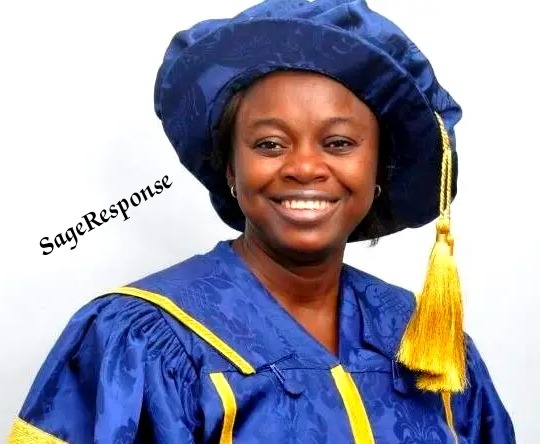
The immediate past Rector of Ogun State Institute of Technology, Igbesa in Ado-Odo/Ota local government area of Ogun State, Engr. Dr. (Mrs.) Olufunke Olanike Akinkurolere, in this interview, calls on government to invest more on technical and vocational education if Nigeria wants to move forward in technology. She also speaks on her achievements while at the helms of affairs in the institution. Excerpts:
How was it when you came as the second substantive Rector of OGTECH?
When I took over as the second Rector of Ogun State Institute of Technology, (OGTECH) Igbesa in 2014, everywhere was just opening up. I can say it has been a very memorable journey. In terms of infrastructure, everywhere was just opening, no fence. I met the gate at the entrance and very few structures. But I met people on ground who were willing to work and with these people, and we were good to go. It was a great challenge, but, today, I give thanks to God because of what we have been able to achieve. The people I met at OGTECH and I have been able to work as a team with commitment and dedication.
When you came to OGTECH, how many accredited courses were there and how many are there now?
When I resumed, there were 11 accredited courses and 18 programmes. So, we went straight to work, looking for how we could improve on our programmes and, today, there are 35 fully accredited programmes.
OGTECH was recently recognized as the best in terms of academic programmes. What are the factors that you can attribute this to?
First of all, I want to give glory to Almighty God because I believe there is nothing that is not possible with Him. I also want to thank members of staff because it takes the Rector to provide good leadership but you cannot provide good leadership if you don’t have good people following you. So, if you want to have a good leadership you need a vibrant team. I want to appreciate the staff, both academic and non-academic; they are so wonderful. We have dedicated and committed staff in OGTECH. Winning an award, you know all institutions in Nigeria were put on the same scale and there were criteria and for us to have won the award. It means we met all the criteria. The award was the most compliant in admission processes. When you look at all the categories of award, that was the one based on merit and academic performance because when you talk of admission, you have to follow guidelines. I want to appreciate the admissions unit of the institution because they were actually in charge. Today, we can boldly say that OGTECH is an award winning institution. I want to appreciate Governor Dapo Abiodun. By winning the award, we were singled out among all state owned tertiary institutions because we happened to be the only state owned tertiary institution that won the award. All other categories were won by Federal Government owned institutions and for it to have come to Ogun State further reinforced that we are the Gateway Polytechnic and for the Governor of the state to have recognized that also re-informs his commitment to education. Sincerely, since he came on board, he has been fulfilling his promises in the area of education. I was not the only one recognized, he also recognized the students. That recognition was a challenge for us to do more and that is why we have been working to make sure we don’t go below standard.
You are a female engineer, what do you think can inspire more females to come into this field?
I have been advocating for more females in this field. When I was processing my admission, it was only two female students. So, in a class of 22, we had only two females. One of the ways to encourage young female students is by telling them our testimonies because I have discovered that in engineering, female students always outshine their male counterparts. They should not be intimidated by their male counterparts. Though, it is a male dominated profession, I can tell you that female engineers are doing well in the profession now.
Technical and vocational education is crucial to the development and industrial growth of any country, but in Nigeria, it has become a case of much talk, less action. What do you think is the way out?
No nation can have meaningful development without skill development. Getting a degree is different from having a skill. We may know the theory, but do we actually have the skill? You may have degree and diploma, make sure you have a skill and that is everything about vocational and technical education. We want skilled laborers in our nation. When you look at Nigeria’s population, we have more youths than many other countries, so we should use this to our advantage. All we are advocating for is skill and that is what the polytechnic education is meant for. I know of a friend who has B.sc in chemistry but, today, she is a journalist. We have been advocating that government should invest more in this sector. When we are talking about skill, we need to train people because you cannot acquire skill theoretically. We are advocating that we should involve industries more because these are some of the things that actually help. We also need skilled manpower in our nation Nigeria. The future is bright for us in this nation, we just need to get things right. We should train our youths and give them skill. We have vibrant youths in Nigeria.
Industrial action has become a norm and of course bedeviled our tertiary institutions in Nigeria. How can this be addressed?
Nobody likes industrial action, even the ASUP and ASUU are not happy about strike because most of them are parents that have their children in tertiary institutions. Government needs to invest more in education. The educational sector should be well funded. At least, 20% of annual budget of the country or state should go into education. A lot of people think that lecturers are always happy going on strike. I don’t think any sane person can be happy. Government needs to listen to the lecturers. Though, there are challenges in the nation, what the lecturers are asking for is for the betterment of the nation’s education sector. Strike disrupts academic calendar, the future of our children, the students we are training. Time waits for no man. A lot of opportunities must have been lost.
One major highlight of your tenure is the award given to the institution by JAMB. How did you achieve this?
OGTECH is a polytechnic, some of our members of staff engage in research. Apart from the fact that what we do here is raising future leaders, they do not only come in here to get their diploma as the case maybe. We are raising future leaders and then we also imbibe in them moral values and we are always happy about the outcome. These are some of the contributions. We are producing graduates that are independent and useful to the society, and that is basically what the institution is all about. We want to make them employers of labour. You don’t have to wait for government to get you job. That is part of the training that we give them.
During your tenure as Rector, can you lead us into some of your achievements?
Everything is by the grace of God. When I wanted to start, I was in this office with some of the staff members and we decided to look at some basic projects that could bring structures. When I came, I told you I met only the gate and the implication was that anybody could come in at any time. Today, everywhere is fenced. OGTECH is now a polytechnic of choice. We improved on infrastructure. When I came in, the foundation of the multipurpose hall was only laid, so we started with that and, because of my profession as a civil engineer, we were able to put that in place. We ensure that whatever we are doing can stand the test of time. All the projects under my supervision are of standard. We did landscaping, we constructed bigger auditoriums. We constructed a multi-million Naira twin lecture hall which is named after Governor Dapo Abiodun. When you go round our campus, you will see everything almost blue roof, they were constructed during my tenure as Rector. The Mass Communication Department, with brown roof, was constructed and equipped by me. There was a building that was burnt down by fire, we reconstructed it. We also built a twin hall for ICT. We have over 300 computer systems there. Most of these things were done from our IGR through the support of government. There is a laboratory for the Engineering Department, it’s a storey building that has eight standard laboratories, furnished and equipped. In the School of Science, I can count the number of offices with air conditioners.
How have you been able to confront cultism on campus?
We have been able to reduce or tame the activities of cultists to the barest minimum. Not that we don’t have them around, but one thing is that the institution has zero tolerance for cultism. There was a time we expelled about 12 students and we informed DSS and the police. We also pasted their pictures everywhere so that nobody will harbor them. We sent some students home recently. This has reduced the activities of cultists drastically.
How supportive has the Ogun State government been in the actualization of the OGTECH of your dream?
I want to send an appreciative note to the people of Ogun State because to be here as Rector, I can say that government has been very supportive. In Ogun, we have over 10 state owned tertiary institutions and for government to be able to sustain all of these, that is well appreciative. For the very first time in the history of this institute, we got support from government during accreditation. The fact that government supported us shows that they want the school to continue to survive. We receive our subventions regularly. Government monitors our IGR to make sure that there’s no misappropriation. Government is trying to make sure that we run smoothly and that is why our students stand out anywhere they go to.
Did you leave OGTECH fulfilled?
I left OGTECH fulfilled. I can say that with my shoulders raised up because it’s not only about infrastructure, what about impacting on lives? A lot of people, when I came on board, the most senior lecturer was Lecturer II. Now, we have Chief Lecturers. Staff promotion has been very consistent. I have been able to address promotion issues from 2010 and as of today we are not indebted to anybody. We pay our salaries on the 25th of every month. I make sure we remit staff deductions regularly because I noticed that that’s what a lot of staff use to survive. Just this year alone, we have sent about 25 members of staff abroad for training, it’s not by TETFUND, it is from within. So, I left OGTECH fulfilled. I return all glory to God. I thank the Commissioner for Education, Science and Technology, Prof. Abayomi Arigbabu. He’s been a good mentor. I have worked with Commissioners and staff and where we are today is through their encouragement and advice.
1 note
·
View note
Text
2023: Will Youths Make Their Number Count This Time?
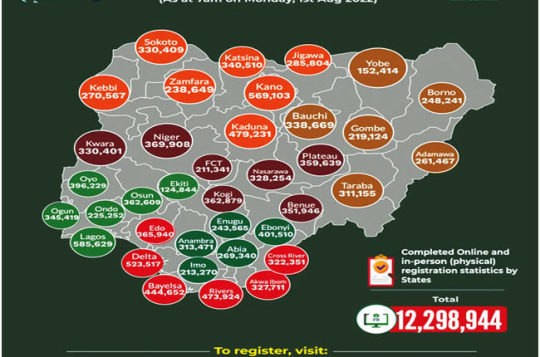
WITH the Independent National Electoral Commission (INEC) concluding the year-long voter registration, WALE AKINSELURE writes on the implications of the demography of an updated voter register to be used for the conduct of the 2023 general election.
The Continuous Voter Registration (CVR) exercise which began on June 28, 2021 came to an end on August 31, 2022. At the end of the exercise, it recorded a total of 10,487,972 fresh registrants out of a total of 31,098,013 applications covering voter transfer, requests for replacement of Permanent Voter Cards (PVCs), update of voter information record among other requests. According to the Independent National Electoral Commission (INEC), as shown on its official twitter handle, completed registration stands at a total of 12,298,944 made up of 3,444,378 online registration and 8,854,566 physical registration.
All those figures are not mere statistics. They have far-reaching implications for the general election coming up in the country in 2023. The figures are critical for planning by all the major stakeholders in the elections. INEC will be fashioning and deploying part of its resources to align with new figures to achieve a seamless poll. But beyond the figures, the political parties, their candidates and their promoters are bound to distill the figures based on the age-bracket of the new registrants responsible for the astronomical rise in the voting population next year. The rising level of political consciousness and awareness among the youths culminated into many of them trooping out to register to beat the august 31 deadline. The candidates will want to scramble for that huge population of the youths as well as strategise on how to secure maximum votes from zones with the huge population of potential voters as reflected in the figures released by INEC.
The commission had declared at commencement of the CVR in a bid to update the voter register used for the 2019 elections. The old registered contained 84,004,084 voters and at the outset of the recent CVR exercise in June 2021, the commission had hoped to add at least 20 million new voters to its existing voter base. Chairman of the commission, Professor Mahmood Yakubu said the registration would be carried out continuously for over a year until the third quarter of 2022.
INEC had also detailed quarterly schedules for the exercise with the end date of July 31, 2022 being quarter 4, week 16. The July 31 end date for the CVR came after INEC yielded to calls for an extension of its earlier June deadline. The CVR is being done in compliance with the 2010 Electoral Act (as amended) which mandates INEC to carry out CVR nationwide and to make available to every political party within 60 days. The CVR is meant for registration of citizens who turned 18 years of age after the 2019 election or those, who for one reason or another, could not register in the previous exercises. Continuous Voter Registration also allows for updating or amendment of registration details by registered voters: misspelt names, omissions or wrong details, amendment in marital status. The CVR is to culminate in the issuance of Permanent Voters Card (PVC) which will enable registered voters exercise their civic right to vote in the general election. In embracing technology, the hitherto practice of intending registrants presenting themselves to the CVR officers at INEC offices or designated public areas for registration was substituted with the creation of a portal where intending voters do a pre-registration. In place of the previous laptop-based Direct Data Capture Machine (DDCM), the ongoing CVR involves the use of a new registration machine known as the INEC Voter Enrolment Device (IVED).
INEC chairman, Yakubu, however, added that the new device could also be used for other purposes such as voter registration during elections, dealing with registered voters who have had issues with their PVCs or fingerprints at accreditation during previous election. Those deemed eligible to partake in the CVR exercise were: Nigerian citizens who have attained the age of 18 years and not previously registered; registered voters who have encountered challenges with their Permanent Voter Cards (PVCs) or their fingerprints not being read by the Smart Card Reader; registered voters who want to effect a transfer of their voting locations; registered voters who want to effect changes to their personal details; Registered voters whose PVCs are lost or defaced/damaged. To address fears of those who are not digitally inclined, physically disabled or people living in rural areas without access to the Internet, the commission also established 2,673 centres where citizens can register manually. This innovation saw 87,083 persons living with disability complete their registration out of 216,442 that applied to the commission for one issue or the other.
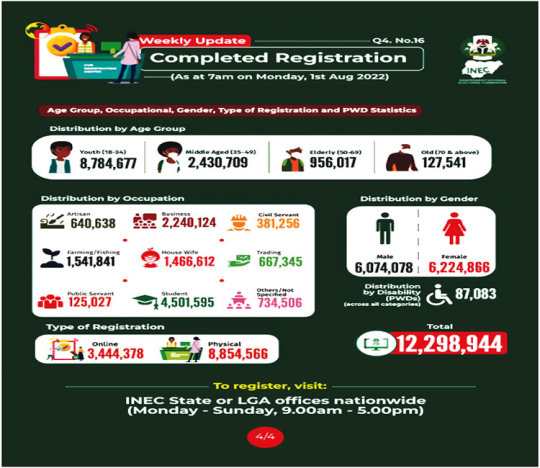
However, pre-registration is just one step with intending registrants still mandated to go to INEC state or local government area offices for their biometrics and completion of their registration. As the exercise went on, officials of INEC kept reminding registrants that registering online is only one step, enjoining them to complete their registration by visiting INEC offices. Among other INEC officials, former Resident Electoral Commissioner, Oyo State, Mutiu Agboke, warned that registration is inchoate and incomplete if people only stop at the stage of filling the form online hence should not expect to get PVC before the election. With the conclusion of CVR, INEC is expected to display a preliminary register of voters for scrutiny, between a period of five and fourteen days, to clean up its data before commencing the printing of PVCs.
In the CVR exercise that preceded the 2019 election, a total of 14.2 million Nigerians registered between 2017 and 2018. The CVR, which started in April 2017 was supposed to end on 17th August, 2018 but was pushed to the last day of August 2018. The electoral body subsequently announced that it had a voter base of 84,004,084 going into the 2019 election. In the current voter register, used for the 2019 general election, Lagos state has the highest number with 6,570,291 registered voters, followed by Kano with 5,457,747 voters and Kaduna with 3,932,492 voters. Other states with high number of registered voters are Katsina with 3,230,230 voters; Rivers, 3,215,273 voters; Delta, 2,845,274; Benue, 2,480,131; Borno, 2,315,956; Imo, 2,272,293; Edo, 2,210,534; Jigawa, 2,111,106.
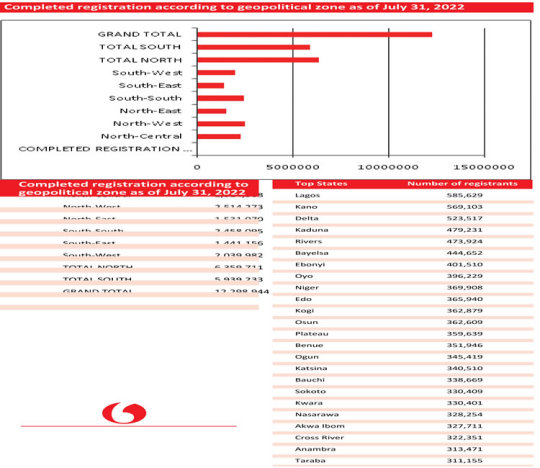
Zonal configuration
In the current register, a breakdown of voters by zones showed that the North-West with 20,158,100 had the highest number of registered voters for the 2019 election followed by the South West which posted 16,292,212 registered voters. Continuing the order from highest to lowest, the North Central had 13,366,070 registered voters; South-South, 12,841,279 voters; North-East, 11,289,293 while the South-East has the lowest number of registered voters with 10,057,130.
The registration figure as of July 31, 2022 showed that more people in the northern part of the country completed their registration, compared to those in the southern part of the country. While 6,359,711 completed their registration in the North, a total of 5,939,233 completed their registration in the South. While for three quarters, Osun State had the highest number who had completed their registration, it was overtaken in the fourth quarter by states like Lagos, Kano, Delta, Kaduna, Rivers, Bayelsa, Ebonyi, Oyo, Niger, Edo and Kogi. At the close of registration, top states, in terms of completed registration are Lagos – 585,629, Kano – 569,103, Delta – 523,517, Kaduna – 479,231, Rivers – 473,924, Bayelsa – 444,652, Ebonyi – 401,510. Ekiti has least number of those who have completed their registration with 124,844 registrants.
In terms of completed registration across the zones, the North-West is in the lead, followed by the South-South, then the North-Central, the South-West and then the North-East. The South-East has the least number of registrants for PVC so far with 1,441,156. The statistics showed an exponential drive in the South-South towards registration compared to the 2019 election. Like in 2019, there are a large number of people keen on having their PVCs in the North West, South West and North Central. However, as in 2019, the people of the South East are still least in number of people being registered as eligible voters.
Initial projection
At outset, INEC projected having about 20 million new voters added to the present voter register but over 12million voters completed their CVR in the past one year. With more than 84 million voters on the present voter registration, about 96 million voters are set to be registered to vote in the 2023 general election. But, INEC National Commissioner for Information and Voters Education, Mr Festus Okoye said not all who registered would get the PVC that would make them eligible to vote. He warned that prospective voters who indulged in multiple or double registration would be deleted from the commission’s database and ultimately denied PVCs. Interestingly, this year’s CVR exercise falls short of the exercise that preceded the 2019 election where a total of 14.2 million voters were registered between 2017 and 2018. This is despite INEC adopting online pre-registration and offline biometric capture at designated registration centres with the hope that the process of getting eligible Nigerians to register to vote is being eased. INEC had noted that somewhat simplifying the CVR process will increase the number of eligible voters and, in turn, address the issue of dwindling voter turnout that has characterised election in recent years. Stakeholders hold that CVR apathy might not be unconnected with inadequate sensitization by the various stakeholders on CVR, oppressed Nigerians who do not trust the nation’s electoral process. While PVCs are being produced for new registrants, there are still many uncollected PVCs from the over N84 million that were registered by INEC for the 2019 election.
Place of youths
Right from the beginning of the CVR, youths made a bold statement about their keenness on participating in the 2023 general election leading from the first week of the first quarter of the exercise. At the end of the first quarter of the exercise in September 2021, youths between the ages of 18 and 34 constituted the majority with 771,770 (71.33 percent) completing their registration. In similar fashion, students also formed the largest category with 439,608 (40.63percent). The youths have sustained the momentum of being in the lead for the CVR. At the close of registration, a total of 8,784,677 youths, within the age of 18 and 34, made up the highest number out of the 12,298,944 that had completed registration. In terms of occupation, students, at a total figure of 4,501,595 also constituted the highest number of registrants. Even, in terms of the total applications for various voter issues of 31,098,013, youths also made up the largest number with 18,196,782 registrants. The youths are followed by those in the middle aged bracket of 35-49 years with a total of 2,430,709 registrants, elderly (50-69) with 956,017 registrants while the old (70 and above) make up the least with 127,541 registrants.
Going by the numbers that have completed registration, the youths have, more than ever, shown great interest in participating in the 2023 election. The numbers point to the desire of the youths to take their yearnings to determine those who govern them from the digital media space to reality. However, it waits to be seen if the huge number that have registered will also go to collect their PVCs when they are produced and then go to their various polling centres to vote on election day. Overtime, the youths have been chastised for limiting their political campaigns, yearnings to the social media while leaving the elderly to do the actual going to the polls to vote. As a result, pictures of elderly people queuing in the sun to vote are commonplace. It waits to be seen if it will be more of the youths queuing to vote in the 2023 election. On the interest shown by the youths concerning the 2023 election, programme manager, election, Yiaga Africa, Mr Paul James said a drastic change may be on the way. He described the huge turnout for CVR as a good starting point in the desire to have more youths participate in electoral process.
With about five months to go before the 2023 elections, James said it was imperative for Civil Societies Organisations to step up voter education, youth engagement so as to sustain the interest of the youths till February next year when the elections are to hold. An activist, DeboAdedayo also noted that the ball was in the court of the youths to make the figures they have count in the 2023 election. “According to INEC, the number of completed registration so far is over 12 million. And about 8.7 million of the 12 are youths. Nigerian youths, please make sure you collect that PVC and use it to vote because in 2023, these numbers will matter.” Meanwhile, there are more females that have completed their registration than males. A total of 6,224,866 females have completed their registration as against 6,074,078 males.
0 notes
Text
12 Things You Can Do To Celebrate Your Wedding Anniversary
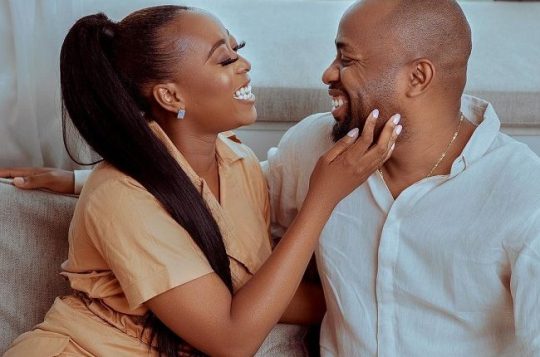
Weddings are beautiful. Yet, when you and your partner celebrate your wedding anniversary it brings greater joy to you and your loved ones.
Wedding anniversary creates the moment when you are reminded of the decision you made to be together and choose this path; months or years ago.
Contrary to the belief that partners grow apart after a few months or years of being married, there are things you can do on your wedding anniversary to keep the passion burning in your marriage. Celebrating your anniversary is one of them.
What follows are fantastic ideas on what you can do to celebrate together.
1. Go on a fun trip without the kids
You can go on a fun trip to a country that you and your partner have been meaning to go – without the kids! It doesn’t have to be outside the country to be a fun trip. You could go somewhere within the city or the country where you live.
If you both have kids already you can always plan their welfare till you are back from your trip. You could leave them at home with your parents, nanny, or a relative. Just work with whatever suits you.
2. Go on a date
The kind of date you could go on depends on the preferences of you and your partner. You can go on a dinner date, eat good food, laugh, and reminisce about how it has been for you both in your marriage. You could also compare how it was before you got married and how it is going for you both.
3. Go to the movies
To celebrate your wedding anniversary with your partner, you both can go to see a movie that just got released or an old movie that takes you down the memory lane. For example, it could be a movie that reminds you both of your childhood, or a movie that you both saw while you were dating.
4. Go on a road trip
Go on a road trip with your partner. Take pictures of the scenery, listen to your favourite songs, laugh, have snacks, have a drink. Make a stop at places that fascinate you along the journey, and ensure to have a good time. You can also do away with distractions; calls, mails, and work.
5. Throw a party
You could throw a party to have people come over and celebrate your wedding anniversary with you and your partner. Have friends and family come over and have a good time with you.
You could also have an intimate party with a defined number of guests. You could have your best friends or married friends with their partners come over to eat, drink, play games, see a movie, and maybe sleepover.
6. Time alone on the roof top
If you and your partner don’t want to do something big or stressful for your wedding anniversary, you could use the roof top at your house if there’s one. You could lay down and stare at the stars at night, have a drink, eat something simple, and speak intimate words to each other.
7. Plan a surprise party for your partner
Planning a surprise party for your partner is a way to celebrate your wedding anniversary. Have a few friends and important people to you both at the party and pull off the surprise.
If your partner has probably had it rough in the past few months, the surprise could make them happy and feel better.
8. Send mails and write notes
You and your partner can write notes and mails to each other if words of affirmations mean a lot to you both. Write notes that take you both down the memory lane. Notes that remind you of beautiful moments, and not-so-beautiful moments that you both pulled through together.
9. Buy a gift that meets a need
If your partner loves gifts you can buy something that he or she has been meaning get, on your wedding anniversary. This is a thoughtful way of celebrating your big day and you can be sure that your partner will absolutely love and appreciate your thoughtful act.
10. You can recreate your first date
This right here is a good way to make your wedding anniversary beautiful. You can take your partner to the place you both had your first date or somewhere similar, and do things similar to what you both did months or years ago. Your attention to details and thoughtfulness would go a long way in making your anniversary a memorable one.
11. Attend a music concert
This is a good way for you both to celebrate your wedding anniversary, especially if you both love music. Make a great time singing, dancing, taking videos, and enjoying every moment.
12. Send flowers and heartfelt notes
Send flowers and heartfelt notes to your partner at work. Reassure your partner about your love for them and invite them to lunch or dinner after work.
Above all, you can make your wedding anniversary a memorable one by doing things that matter to you both and would make you happy. It’s all about you both, right?
0 notes
Text
40 Americans take Igbo names, claim ancestry

The President of Ohanaeze Ndigbo, Enugu State chapter, Prof. Fredrick Eze (7th right); the traditional ruler of Ibagwa-Aka community, HRH, Igwe Hyacinth Eze (8th right); and the students of the Morehouse College Glee Club shortly after the Americans received their Igbo names in Nsukka, Enugu State on Wednesday.
Forty students and faculty members from Morehouse College Glee Club in Atlanta, United States of America, USA, on Wednesday, took Igbo names and declared their ancestry to the Igbos of South East Nigeria.
Some of the students disclosed that they traced their Igbo ancestral roots through DNA tests conducted on them.
While performing the Igbo-name-giving ceremony at the University of Nigeria, Nsukka, UNN, the traditional ruler of Ibagwa-Aka community in Igbo-Eze South Local Government Area of Enugu State, HRH, Igwe Hyacinth Eze, expressed happiness over the reunion of the Igbo-Americans with their ancestral brothers.
The monarch said he was also happy because of the spiritual, cultural and economic exchanges which would happen as a result of the reunion, adding that he is willing to provide lands for those are willing to live in his community.
Also, while speaking during the ceremony, the President of Ohanaeze Ndigbo, Enugu State chapter, Prof. Fredrick Eze, said the reunion would help in the development of Igbo communities.
However, the Public Affairs Officer, United States Consulate General, Lagos, Stephen Ibelli, said the Club came to Nigeria to mark the 50th anniversary of its first visit in Nigeria in 1972.
He equally explained that the Club would tour Abuja, Enugu and Lagos States to strengthen US-Nigeria cultural ties through music, arts and film.
“The Morehouse College Glee Club, which is celebrating the 50th anniversary of its first tour in Nigeria, will offer public concerts in Lagos, Abuja and Enugu. In addition, the group will visit universities and high schools, meet Nigerian students, and explore their historical ties to Nigeria.
“The 1972 visit to Nigeria infused African music into the Glee Club’s tradition and American Choral music in general. Fifty years later, choirs across the United States sing in Nigerian languages, highlighting the long-term impact of that exchange. The Morehouse College Glee Club has since learned a variety of songs in Edo, Yorùbá, Hausa, and Igbo, including a piece specifically composed for them by Igwe Laz Ekwueme, famed Nollywood actor and University of Lagos professor.
“During the visit, the Morehouse College Glee Club will carry out a dynamic exchange of musical knowledge with the broad spectrum of the Nigerian society, singing in Hausa, Igbo, and Yoruba languages,” the statement made available to Saturday Vanguard by Ibelli revealed.
U.S. Ambassador Mary Beth Leonard noted that the visit will strengthen the longstanding ties between American and Nigerian institutions of higher learning, and further expand the scope of academic and cultural relations between the United States and Nigeria.
“Cultural exchanges such as the visit of the Morehouse College Glee Club will help contribute to strengthening the bonds of friendship and collaboration through music and arts, offering an opportunity for Nigerian students to learn about academic experiences in the United States,” Ambassador Leonard added.
Many of the student members of the Morehouse College Glee Club described their visit as an opportunity to connect with their African roots.
“I love the culture of Nigeria,” 19-year-old Schneider Grandpierre, a junior third-year student studying Music and Computer Science at the Morehouse College said of the trip. “It is such an enriching and amazing experience to be able to reconnect with our cultural roots and sing Nigerian music in different languages. I look forward to an extended stay here even after this tour.”
Expressing his excitement about the visit, 23-year-old John Batey, a Business Administration major and tenor singer for the choral group said he has been able to trace his roots to Nigeria through a DNA test. “We will be exploring the Nigerian creative and entertainment industry. I am excited about the tour,” Batey said of the trip.
Director of the Morehouse College Glee Club, Professor David Morrow, explained that the choral group will perform a repertoire of African and American songs particularly African-American spirituals which have roots in West African music traditions.
Professor Morrow noted that the Morehouse College Glee Club is rooted in Dr. Martin Luther King, Jr’s legacy. Dr. King who sang in the Morehouse College Glee Club was one of the notable alumni of the Historically Black College in the United States.
Some of the Igbo names given to the Igbo-Americans include: Ezuomike, Ogalanya, Odenigwe, Anyim, Ifeanyi among others.
0 notes
Text
Vumile Msweli: ‘We have to break the glass cliff barrier for women’
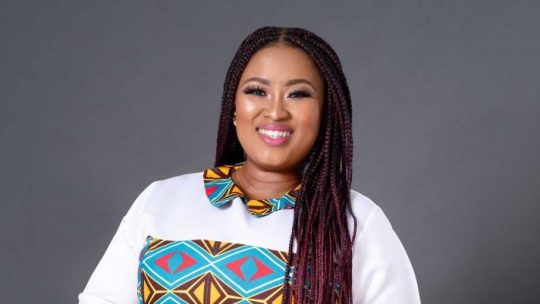
Vumile Msweli is the Chief Executive Officer of Hesed Consulting, a coaching and consulting firm that specialises in commerce acceleration, career coaching, women empowerment, facilitation and training. The organsation currently has presence in Nigeria, South Africa, Botswana and Rwanda, with affiliates in Namibia, Ghana and Uganda.
Vumile previously worked for reputable multi-national institutions, including Barclays, Investec, Nedbank, First National Bank and Vodafone. An Operations, Finance and Strategy executive with experience in both the telecommunications and finance sectors, she has successfully led global teams in Africa (Nigeria, Kenya, Democratic Republic of Congo, Zambia, Lesotho, Ghana, Tanzania; Mozambique and South Africa); and Europe (Scotland, Isle of Man and England).
As a coach, she has carved a niche for herself in career coaching while also servicing clients in executive, financial, speaking and mentoring coaching. She is also the host of Vumi and Veuve Host Women In Commerce, a career columnist in a leading national newspaper and a career radio host in two radio stations. With degrees from two universities in South Africa, she has an MBA from the University of London and an ongoing Doctorate Applied Leadership from the UGSM, Switzerland.
In this interview with TOBI AWODIPE, she spoke on the importance of career and life coaching for women, breaking glass cliffs and deploying the rule of three in businesses amongst other issues.
You’ve had an interesting career; please take us through your journey so far?
My career journey began in banking from the contact centre and quickly accelerated to an executive role. My journey has been underpinned by education; education has been, for me, the key to the world. I completed my matric at St. Mary’s DSG, did a Bachelor of Accounting Sciences from the University of Pretoria and got a Bachelor of Commerce Financial Planning Honours. I then did my Masters in Business Administration at the University of London, my Executive Education at New York University, my Higher Education Teaching certificate at Harvard University and I am currently studying my Doctorate in Coaching at Switzerland’s Monarch University.
I have spent my career working in the banking and telecommunications sectors and this afforded me the opportunity to work in incredible places such as Singapore, Germany, the Democratic Republic of Congo, Nigeria and South Africa. I always suspected that I would be an entrepreneur, which is how I founded Hesed Consulting, a pan-African coaching and recruitment firm.
You’re also a life and transformational coach among others, what informed your decision to take on these roles?
Becoming a career coach was borne out of my frustration in my corporate career. I was a young executive facing challenges and wanted a coach who looked like me and understood my struggles. Someone who not only empathised but understood what it was like to be an African female pursuing excellence, whilst climbing the corporate ladder. I identified gaps in myself, and I knew coaching could help close those gaps.
A career coach is an expert who has hundreds of hours aiding people to achieve their career goals and gain clarity on their career journey by equipping them with skills that help them overcome obstacles and succeed in their work. So, that is the service I have chosen to dedicate my time to. I support people in their career journey, overcoming obstacles, and having work that fulfills them.
As the head of Hesed Consulting, how are you merging all the things you do successfully?
Hesed Consulting is the channel that enables me to fulfill my life’s calling; to help people have successful and fulfilling careers. We are a pan-African organisation that facilitates the attraction of human capital through recruitment as well as growing and retaining talent through coaching. It keeps me busy, but I truly believe in work-life fluidity, which means I invest in my team, take time to cultivate relationships with my family and friends and get very comfortable on my knees, seeking God for His Will for my life.
There are so many coaches and coaching sessions targeted at women these days. In your opinion, how impactful is this for women?
I believe that a coach is a powerful weapon for women’s careers and life. I personally have three coaches and they have proven invaluable in my growth, both personally and professionally. Unlike a sponsor or mentor, a coach ordinarily has no relationship with you prior to you seeking out their professional services. They are an objective expert in their field who aid people in achieving their goals through psychological techniques, inner reflection and training.
So, a coach has often helped many people in a specific industry or career level, and unlike a mentor, doesn’t solely draw on their experience. A coach, in essence, allows for the sharing of best practices with you as a client and helps you achieve a set goal through a series of coaching sessions.
The theme of this year’s Women’s Month was, Break The Bias, how would you say you are exemplifying this through your work?
In celebrating International Women’s month and reflecting on #BreakingTheBias as a career coach, I naturally consider the workplace. I think of biases like female bosses are terrible or that women have glass ceilings and, at times, even glass cliffs. The use of the phrase ‘she is shattering the glass ceiling’ is a popular term used to describe the pioneering of women and minorities into spheres they historically could not engage in.
However, there is now a new phenomenon called glass cliffs. Glass Cliffs are when women are brought in to save the day when their predecessors have led organisations to dire situations. To break these biases is to make it commonplace to have women in the C-suite, in leadership and executive roles. To break these is for it to be normal to have a board or the African or European Union presidents be predominantly female. So that when we see women in positions of power, we don’t arch our eyebrows in surprise or clap in celebration; it’s another Tuesday because women belong in those seats as much as their male counterparts. That is the reality of our business; our entire board consists of African women from all over the world who help drive African women to shatter glass ceilings and cliffs in whatever career realm they find themselves in.
Having successfully led global teams in Africa and Europe, how would you say we could accelerate and grow women-led SMEs?
I think it’s by creating a culture of leaving the door open in every room you enter to make it easier for other women to come in after you. In essence, it is cultivating a culture of creating opportunities for other women. By intentionally using products and services from women-led SMEs, we help create sustainability for that entrepreneur and increase the opportunities for scalability.
Why are women underrepresented in key leadership positions and how can we change this?
Women historically were not economically liberated and allowed to engage in leadership. This legacy is what results in the disproportionate numbers between men and women at various levels. To change this, we will have to give women the same access, support and privileges that men have enjoyed to get to leadership roles.
To counter this historical advantage bestowed to men, women will need sponsors, mentorship, advocates, coaches and more opportunities that take into account the unique challenges that women face like maternity leave and family responsibilities such as being wives and mothers.
As someone experienced in finances across Africa, what would you say are some of the key issues start-ups face, especially in Nigeria?
Start-ups across the continent have the biggest challenge with access; access to opportunities, finances and investors. Access to markets that can help scale small businesses and access to experts, information and education to help fast track their growth.
The financial institutions we have tend to be archaic in their approach, using models not well suited to the African terrain for start-ups who very rarely have the collateral required to access financing. Furthermore, most entrepreneurs are busy trying to establish their businesses and don’t focus on acquiring financial literacy.
What solutions would you proffer to these problems?
I think creating financial models and products that suit the uniquely African challenges, which the average business will be able to access. This should be underpinned by financial education and literacy.
What five key takeaways would you give a female founder?
The rule of three; however long you think it will take, multiply it by three, how much you think you are going to need, multiply it by three, how many people in your network that you think you need, multiply it by three. So, in essence, think bigger, increase your capacity for patience, stay focused and hold on to your vision even though it may tarry.
Tell us something you do/did that has influenced your career positively today?
I think getting coaches to help me grow in my career set me apart from my competitors. I think investing in coaching helped me to better articulate my ideas and better position myself. I also think intentionally giving myself exposure through education and travel has served me in good stead enabling me to work all over the world and thus gather global best practices.
Going beyond the usual rhetoric, how can we truly empower today’s woman so she can compete internationally?
To be successful globally, you must give yourself exposure to the world. The world is bigger than your city, country and continent. You are competing with other women sitting in Kuala Lumpur, Toronto, Sao Paulo, Mombasa, Durban… what you bring to the table must have local relevance, but be able to impact the international arena. Knowing how to effectively position yourself and articulate the value you bring whilst respecting the nuances of your diversity will empower you to be globally competitive.
Doing business across different African countries isn’t without its challenges, how are you surmounting these issues?
The biggest misconception is that Africa is the same; we may have the same hue, but are far from homogenous. Walking into a meeting in Lagos versus Kigali versus Gaborone is fundamentally different. I tend to immerse myself in the culture, studying the people, understanding the value system, working with local experts to help guide me and then investing in building those relationships. I like to be clear in the value I can add and the unique service I bring as a career coach and recruiter.
What are five little known facts about you?
I have travelled to over 55 countries in the world. I tasted ‘dodo’ for the first time in my twenties. I am doing my doctorate in applied leadership and coaching. My absolute favourite colour is yellow; it just feels like sunshine and happiness to me. I find my peace in my village; something about the rolling green hills gorgeous rivers allows me to connect with God.
How do you de-stress and unwind from your busy schedule?
I thoroughly enjoy travelling to explore the world; something about immersing myself in a new world piques my curiosity and makes me feel like a child once again. I thoroughly enjoy the simple pleasure of playing with my dog. I also find journaling a good way to release the pressure, fear and anxiety. I also find playing with adult colouring-in books help me to decompress.
What changes would you like to see happen for women if you could make them?
I would love to be able to acquire for women sponsors and advocates for their careers than their male counterparts access with such ease. This, I think, is a simple change that could catapult the careers of women across industries and help close the gender gap.
You seem to have many friends in Nigeria, how’s your personal relationship with Nigerians and the Nigeria-South Africa relationship in general?
I recall studying in Ghana and coming to visit Nigeria for the first time; it began a love affair that has stood the test of time. Nigeria is filled with African excellence, ambitious, hardworking people who strive to embody the African dream. I admire the fast-paced and energetic can-do attitude of Lagosians and have seen this city as the Mecca for my own ambition, refuelling my passion and drive.
South Africa and Nigeria have the biggest economies in Africa, but I think both countries are yet to fully step into their true leadership roles in the continent.
0 notes
Text
14-year-old Oluebebe wins first Igbo spelling bee competition
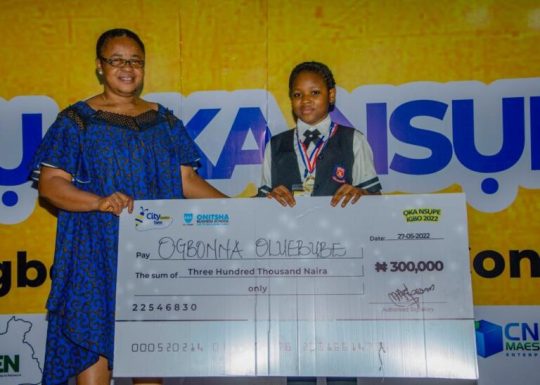
Miss Oluebebe Ogbonna, a 14-year-old student of Divine Rays British School Obosi, Idemili North of Anambra, on Sunday emerged the winner of the first Igbo Spelling Bee competition.
Ogbonna came tops in the competition in which 356 public and private secondary school students in Awka, Nnewi, and Onitsha educational zones participated.
The event was organized by City Speller Bee, in collaboration with Onitsha Business School.
In the final round which featured 16 schools, held in Onitsha, Ogbonna beat Oruche Chukwuma of St Paul’s Seminary Ukpor and Okeke Godswill and Divine Rays British School, Obosi, to second and third places respectively.
The News Agency of Nigeria (NAN) reports that the winners went home with N300,000, N100,000, and N50,000 respectively for their efforts.
They were tested on knowledge of spelling, Igbo syllabication, and punctuation.
Mrs. Ogochukwu Ifeka, Professor of Igbo Literature at the Chukwuemeka Odumegwu Ojukwu University, Igbariam, said the competition had confirmed that efforts to revive the Igbo language are yielding fruits.
Ifeka commended the students’ proficiency in the knowledge of the Igbo language and also their schools for taking the teaching of the language seriously.
She said the competition would elicit positive interest among youths and also encourage them to take up careers in it.
The university Don urged parents to interact with their children in their native languages as it was not the duty of formal school teachers to teach them.
Ifeka said schools and offices should implement the policy of the government that Igbo Language and attire should be spoken and worn on Wednesdays as a way of helping the young ones grasp the language.
“I must say I am impressed with the performance of these students, while I was marking their scripts, I had Internal joy that they could do so well.
“I want to thank the organizers of the Igbo Spelling Bee Competition for reawakening the consciousness, the good thing is that the fear that the Igbo Language is going into extinction is no more there.
“It is the duty of parents to teach their children their native languages, that is why it is called ‘mother tongue’, they should communicate with them in their own languages, it also goes with a strong understanding of their culture,” she said.
0 notes
Text
Family your worst enemy – Tuface defends Annie Idibia
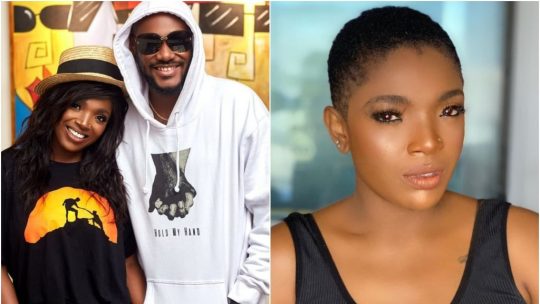
Nigerian music legend, Tuface Idibia has defended his wife, Annie, after her brother accused her of maltreating him.
Annie’s brother, Wisdom, in a trending video, accused his sister of stripping him of the car and everything she gave him.
He also accused her of treating him as a slave.
Reacting, Annie denied all allegations stating that her brother is entitled and is upset she refused to employ him as her manager.
Tuface, in her defence, took to his Instagram story calling out family members who are enemies.
He wished Wisdom all the best while expressing disappointment in his utterances.
Tuface on Instagram wrote: “Dear Wisdom, I hope you are happy with this post, I hope you will continue to stand by this post. Well no matter what it’s still nothing but best wishes and prayers from Annie and I.
“It’s funny how some people react when you tell them the truth. Even I am guilty of it sometimes but that is no excuse I pray for Wisdom.
“I understand people telling Annie not to respond but this cuts deep.
“May Allah guide our path, One love from me and Annie. Respect to family but sometimes some family is your worst enemy.”
0 notes
Text
World Cup finals draw pots, seedings confirmed [Full list]
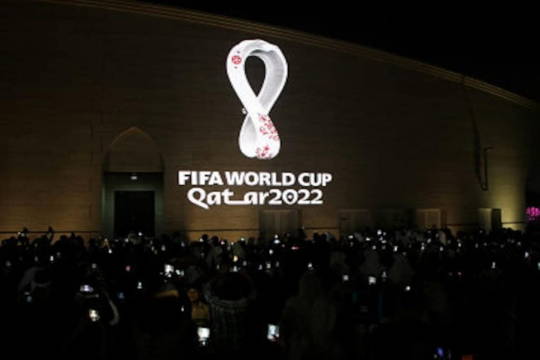
The pots for the 2022 World Cup finals draw on Friday are set.
This came after Mexico and the United States booked the last two automatic places on Wednesday.
The US qualified despite a 2-0 defeat to Costa Rica, while Mexico defeated El Salvador 2-0.
Both countries will be in Pot 2.
Canada missed out on a place in Pot 3 after losing 1-0 to Panama and will instead be in Pot 4.
Pot 1:
Qatar
Brazil
Belgium
France
Argentina
England
Spain
Portugal
Pot 2:
Mexico
Netherlands
Denmark
Germany
Uruguay
Switzerland
United States
Croatia
Pot 3:
Senegal
IR Iran
Japan
Morocco
Serbia
Poland
South Korea
Tunisia
Pot 4:
Cameroon
Canada
Ecuador
Saudi Arabia
Ghana
Wales or Scotland / Ukraine
Costa Rica or New Zealand
Peru or Australia / United Arab Emirates
One team from the four pots will be in each group. Five of the eight groups will have a maximum of two European teams, as 13 qualify.
The tournament will be played between Nov. 21 and Dec. 18 in Qatar.
1 note
·
View note
Text
Five Special Ways To Prepare For Ramadan

Ramadan, which is the ninth month on the Islamic calendar, is a holy month for Muslims all over the world.
Fasting during the month of Ramadan is one of the five pillars of Islam. It is compulsory for Muslims who have attained maturity to fast for 29 or 30 days during the month. Ramadan starts with the sighting of the crescent as announced by the leading Islamic authorities in the country.
Entering Ramadan requires making special preparations that will enable the faithful to observe fasting the way it was prescribed by Allah and His Prophet (SAW) and have maximum rewards.
Here are five ways to prepare for this year’s fasting season which may commence on Sunday – subject to the announcement by the authorities – when Shaaban will have been 29:
Medical checkup
Sound health is one of the major criteria for fasting as people battling health crisis that could deteriorate if they fast are exempted from observing Ramadan. Going for medical checkup before Ramadan is one best way to get prepared for the month-long spiritual obligation, especially if one is showing symptoms of ill-health. It is good to be certified fit before Ramadan commences or get treated for any illness that may hinder one from having smooth fasting.
2. Set your goals
Since the month of Ramadan is divided into three stages: mercy, forgiveness, and protection, every Muslim who is hoping to attain Allah’s rewards should set goals to achieve the desired results. This may include donating, feeding the needy according to one’s means, observing supplication and reading the Holy Quran. A well planned to-do list can help a lot.
3. Maintain balanced diet
During Ramadan Muslims refrain from eating, drinking, and sexual activity from dawn to sunset. Therefore if you want to meet the amount of energy and nutrients your body needs during the day, a well-balanced diet before and during iftar (breaking the fasting at the sunset) is essential.
You need to eat foods rich in protein, carbohydrates, vitamins and minerals and drink enough water.
4. Improve your character
Every Muslim is expected to be of good character, but as part of the preparation for Ramadan Muslims should work more on different aspects of their character.
This begins at the family level to neighborhood and the society in general. To be the best in Islam is to have the best manner and characters.
5. Discipline your soul and sense organs
Purity of soul is very central to Ramadan. The mind must be disciplined from thinking of bad or evil things. Also Muslims are expected to watch their tongues from engaging in frivolous and bad talks. Gaze should be lowered to prevent the eyes from seeing sinful things.
0 notes
Text
2022 World Sleep Day: Sleep well to live well

Tired minds don’t plan well. Sleep first, plan later
– Walter Reisch (1903-1983), Austrian Director and Screenwriter
No one sleeps less and lives well, no! The quality of a man’s health and life is largely determined by the quality of his sleep. A healthy life is a reflection of good quality sleep, while the opposite reflects poor insufficient sleep. Certain habits of modern life have taken away sleep from us as humans. Most people go about with the wrong notion that he who sleeps for the recommended sleep hours at night is lazy or jobless. It is completely untrue as those who sleep less daily aren’t mentally refreshed for proper daily activities. Those who deprive themselves of quality sleep always (will someday) break down and the rest that sleep ought to have provided will be forced by then. Their bodies would demand sleep at the wrong time as nature cannot be cheated.
On March 18, 2022, the annual event of World Sleep Day was celebrated across the globe. The day is held the Friday before Spring Vernal Equinox (also called March Equinox, which marks the start of spring) of each year. The World Sleep Day reminds everyone who cares about their health to take action on important issues relating to sleep. It is a global awareness act that celebrates sleep and attempts to help those with various sleep challenges. The day also serves as a gentle reminder to everyone, who is experiencing sleep disorders, as it proffers better ways in the management of sleep.
The slogan for this year’s World Sleep Day, Quality Sleep, Sound Mind, Happy World, is a pointer to the fact that the role sleep plays in life cannot be overemphasised. Good health is not guaranteed without a sound mind that is only provided by good sleep. It’s not just a nap; it’s not just ordinary sleep; it’s the quality of sleep that can supply the body with the nourishment it needs to become healthy.
It is recommended that adults make it a priority to get at least seven hours of nightly sleep in order to give the body the desired rest for refreshed functioning the next day. Experts say sleep helps the body and brain to function properly because it improves one’s learning, memory, decision-making and creativity. When the brain functions properly, there is an overall increase in concentration and productivity occasioned by a good intelligent quotient. One who sleeps well at night performs well in the day. The theme for World Sleep Day this year is making a clear statement that the world at large can be happy if everyone has a sound mind that only quality sleep gives.
That sleep is the major activity that keeps the body hale and hearty is not an overstatement. It is an essential function that allows your body and mind to be fully recharged. Sleep is extremely important because it builds and repairs the body. It helps to reduce stress levels as well. The immune system becomes stronger and it is well maintained with the help of good sleep. Sleeping well supports overall growth and development of the body. There is no better way to enjoy reduced risk of diabetes, healthier skin, fewer headaches and rapid muscle toning than to sleep well. One’s problem-solving skills can be maximised when the body gets good sleep.
How, then, can one sleep well or sleep better? To catch good and quality sleep, make use of your bed only. Ensure you keep your bedroom cool, quiet and dark when it’s time to sleep. Avoid big or heavy meals right before bed time. To sleep better, attempt going to bed and waking up at the same time each day. To avoid sleep interruption and disturbance, turn off (or put on silence) your phones just as other sound electrical gadgets are to be placed away from the bed. One can also sleep better by engaging in regular exercises.
Poor sleepers and those who sleep less at night usually suffer from constant headaches, poor vision. They are irritable and appear to swing moods easily, unexplainably and irrationally. Not getting enough sleep for the body may result in increased anxiety, depression and other mental health complications that are not easily traceable. Sleep deprivation can result in increased risks of heart disease, stroke and diabetes. A poor sleeper is also said to have an increased risk of breast cancer.
It is important to remind us all that sleep is a human privilege and must not be misused, especially if you have it as provided by nature. Sadly, some people have become addicted to sleeplessness and hence, they have to force sleep when they need it with drugs. On health grounds, and for some other purposes, some people are administered drugs by medical practitioners to ensure sleep plays its natural role in their bodies.
Without a doubt, anyone certified healthy must be a good sleeper. Do not deprive your body of the motivation, nourishment and refreshment a good sleep provides. Whether you’re a light or deep sleeper, ensure you always have a good sleep as it will leave you refreshed and alert when you wake up. So, in order to live well and, maybe, to live long too, please sleep well.
1 note
·
View note